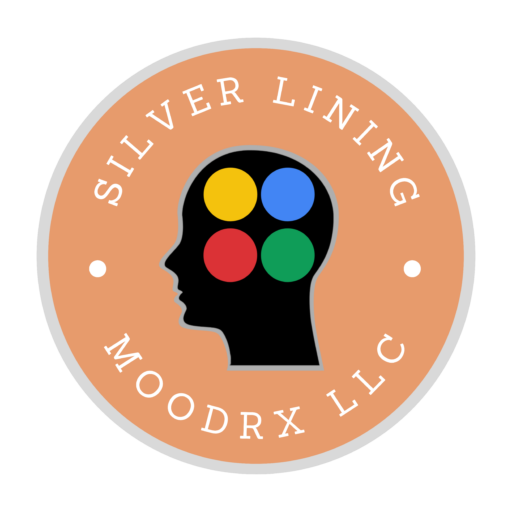Introduction
Alzheimer’s disease is the most common form of dementia, affecting millions of seniors worldwide. It is a progressive neurodegenerative disorder that causes memory loss, cognitive decline, and behavioral changes, making everyday tasks increasingly difficult.
A diagnosis of Alzheimer’s can be overwhelming for both seniors and their families, but early intervention, lifestyle adjustments, and support systems can help individuals maintain their dignity and quality of life. By understanding the disease, recognizing its stages, and utilizing available resources, seniors and caregivers can navigate this journey with compassion, strength, and resilience.
What is Alzheimer’s Disease?
Alzheimer’s disease is caused by the abnormal buildup of proteins in the brain, leading to the formation of plaques and tangles that disrupt communication between brain cells. Over time, these changes cause:
- Memory loss
- Confusion and disorientation
- Changes in mood and behavior
- Difficulty with language and problem-solving
Unlike normal age-related forgetfulness, Alzheimer’s disease progressively worsens over time, eventually interfering with basic functions like eating, dressing, and recognizing loved ones.
Stages of Alzheimer’s Disease
Alzheimer’s progresses through three main stages, though the rate of progression varies from person to person.
1. Early-Stage (Mild Alzheimer’s)
- Forgetfulness of recent events or conversations.
- Difficulty finding the right words.
- Losing track of appointments or misplacing items.
- Mild confusion, especially in unfamiliar settings.
2. Middle-Stage (Moderate Alzheimer’s)
- Increased memory loss and difficulty recognizing family members.
- Struggling with daily activities like dressing, cooking, and managing finances.
- Behavioral changes, such as agitation, depression, or paranoia.
- Repeating questions or getting lost in familiar places.
3. Late-Stage (Severe Alzheimer’s)
- Inability to communicate effectively.
- Loss of motor skills, requiring assistance with walking and eating.
- Severe confusion and inability to recognize loved ones.
- Dependence on full-time caregiving for daily needs.
The Story of Margaret: A Family’s Journey with Alzheimer’s
Margaret, an 80-year-old retired teacher, was known for her sharp wit and love of storytelling. When she began repeating herself in conversations and struggling with basic tasks, her family initially dismissed it as “just aging.”
As time passed, Margaret started forgetting familiar faces, including her daughter. She became disoriented, often wandering into different rooms of the house, unsure of where she was. A medical evaluation confirmed Alzheimer’s disease.
At first, the family felt helpless, but with guidance from support groups, therapy, and a structured care plan, they found ways to make Margaret’s life more comfortable and maintain emotional connections. Her journey with Alzheimer’s was challenging, but love, patience, and proactive care helped her family cherish their time together.
Recognizing Early Warning Signs
Early detection of Alzheimer’s is crucial for treatment and planning. Here are some red flags:
✔ Memory loss affecting daily life (forgetting names, places, or recent events).
✔ Difficulty with problem-solving (struggling with numbers, payments, or cooking familiar recipes).
✔ Disorientation with time and place (losing track of days or getting lost in familiar areas).
✔ Changes in mood and personality (withdrawal from social activities, confusion, or increased irritability).
✔ Repeating questions or statements in a short period of time.
If you or a loved one experience these symptoms, consult a doctor immediately for cognitive testing and evaluation.
Managing Alzheimer’s: Practical Strategies for Seniors and Caregivers
While there is no cure for Alzheimer’s, certain strategies can improve daily functioning and emotional well-being.
1. Creating a Dementia-Friendly Routine
A structured daily schedule reduces confusion and frustration.
✔ Establish consistent meal times, bedtime, and activities.
✔ Use visual reminders (calendars, labels, and notes).
✔ Avoid overstimulation—reduce noise, clutter, and distractions.
2. Encouraging Cognitive Stimulation
Mental engagement can help slow cognitive decline.
✔ Brain exercises – Crossword puzzles, memory games, and reading.
✔ Music therapy – Familiar songs can improve mood and recall.
✔ Art and creativity – Painting, drawing, and storytelling stimulate the brain.
3. Supporting Emotional and Social Well-Being
Isolation can worsen symptoms. Keeping seniors socially engaged is key.
✔ Arrange regular visits with family and friends.
✔ Enroll in adult daycare programs for socialization.
✔ Use therapy pets for comfort and companionship.
4. Adapting the Home for Safety
As Alzheimer’s progresses, modifying the living environment helps prevent accidents.
✔ Install grab bars, nightlights, and locks on doors.
✔ Remove trip hazards (loose rugs, electrical cords).
✔ Use GPS tracking devices if wandering is a concern.
How Therapy Can Help Seniors with Alzheimer’s
While Alzheimer’s is a neurological condition, mental health therapy plays a vital role in emotional well-being.
1. Cognitive Behavioral Therapy (CBT)
✔ Helps seniors manage anxiety and depression related to memory loss.
✔ Encourages positive coping mechanisms and emotional processing.
2. Reminiscence Therapy
✔ Engages seniors in discussing past experiences, improving mood and recall.
✔ Uses photos, music, and storytelling to trigger positive memories.
3. Family Counseling
✔ Supports caregivers in understanding and managing behavioral changes.
✔ Provides strategies for effective communication and emotional coping.
Caregiver Tips for Supporting a Loved One with Alzheimer’s
Caring for someone with Alzheimer’s is emotionally demanding. Caregivers should prioritize their own well-being to prevent burnout.
✔ Practice patience – Frustration is natural, but a calm approach helps both caregiver and patient.
✔ Avoid correcting or arguing – Instead, gently redirect conversations and provide reassurance.
✔ Use simple and clear communication – Short sentences and visual cues improve understanding.
✔ Take breaks and seek support – Join Alzheimer’s caregiver groups or consider respite care services.
Advances in Alzheimer’s Research and Treatment
Although there is no cure, scientific advancements are bringing hope:
✔ FDA-approved medications (Donepezil, Rivastigmine, and Aducanumab) can slow symptom progression.
✔ Clinical trials are exploring new treatments to target Alzheimer’s at the molecular level.
✔ Lifestyle interventions (exercise, diet, and social engagement) are being studied for their protective effects.
Seniors and caregivers should stay informed about new treatments and clinical trials, as ongoing research continues to improve outcomes.
Final Thoughts: Living with Alzheimer’s with Dignity and Support
A diagnosis of Alzheimer’s is life-changing, but it does not erase the person behind the disease. With early intervention, compassionate care, and the right resources, seniors can continue to find joy, connection, and purpose in their daily lives.
✔ Recognizing symptoms early leads to better management.
✔ Cognitive therapy, structured routines, and caregiver support enhance quality of life.
✔ Caregivers must prioritize their own well-being to provide the best support.
If you or a loved one are facing Alzheimer’s, you are not alone. Support is available—reach out, seek help, and find ways to cherish each moment.
Keywords:
Alzheimer’s disease, dementia support, cognitive decline, senior mental health, memory loss management, caregiver support
Hashtags:
#AlzheimersAwareness #DementiaSupport #SeniorBrainHealth #CaregiverWellness #MentalHealthForSeniors
References:
- Alzheimer’s Association. (2023). Understanding Alzheimer’s and Dementia.
- National Institute on Aging. (2023). Cognitive Decline and Brain Health in Older Adults.
- Harvard Medical School. (2022). “The Role of Lifestyle in Reducing Dementia Risk.”
- Mayo Clinic. (2023). “Treatment Options for Alzheimer’s Disease.”
- American Psychological Association. (2023). “Mental Health Strategies for Seniors with Alzheimer’s.”

















